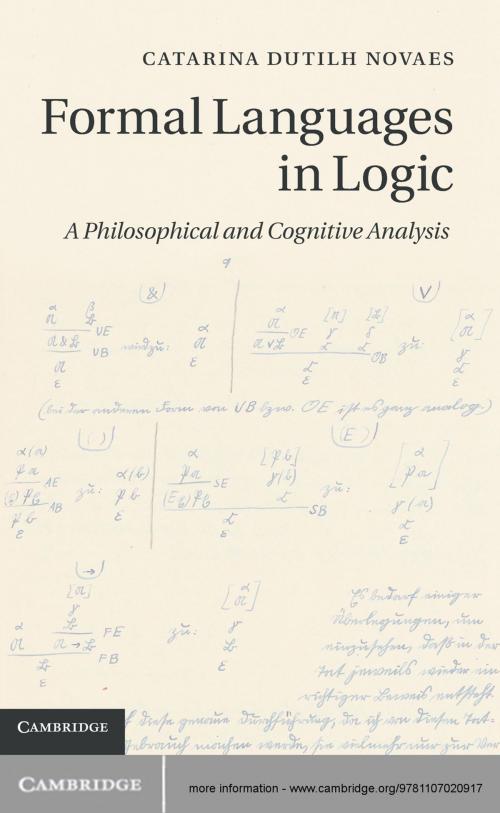Formal Languages in Logic
A Philosophical and Cognitive Analysis
Nonfiction, Religion & Spirituality, Philosophy, Logic, Science & Nature, Mathematics| Author: | Dr Catarina Dutilh Novaes | ISBN: | 9781139794039 |
| Publisher: | Cambridge University Press | Publication: | November 8, 2012 |
| Imprint: | Cambridge University Press | Language: | English |
| Author: | Dr Catarina Dutilh Novaes |
| ISBN: | 9781139794039 |
| Publisher: | Cambridge University Press |
| Publication: | November 8, 2012 |
| Imprint: | Cambridge University Press |
| Language: | English |
Formal languages are widely regarded as being above all mathematical objects and as producing a greater level of precision and technical complexity in logical investigations because of this. Yet defining formal languages exclusively in this way offers only a partial and limited explanation of the impact which their use (and the uses of formalisms more generally elsewhere) actually has. In this book, Catarina Dutilh Novaes adopts a much wider conception of formal languages so as to investigate more broadly what exactly is going on when theorists put these tools to use. She looks at the history and philosophy of formal languages and focuses on the cognitive impact of formal languages on human reasoning, drawing on their historical development, psychology, cognitive science and philosophy. Her wide-ranging study will be valuable for both students and researchers in philosophy, logic, psychology and cognitive and computer science.
Formal languages are widely regarded as being above all mathematical objects and as producing a greater level of precision and technical complexity in logical investigations because of this. Yet defining formal languages exclusively in this way offers only a partial and limited explanation of the impact which their use (and the uses of formalisms more generally elsewhere) actually has. In this book, Catarina Dutilh Novaes adopts a much wider conception of formal languages so as to investigate more broadly what exactly is going on when theorists put these tools to use. She looks at the history and philosophy of formal languages and focuses on the cognitive impact of formal languages on human reasoning, drawing on their historical development, psychology, cognitive science and philosophy. Her wide-ranging study will be valuable for both students and researchers in philosophy, logic, psychology and cognitive and computer science.















